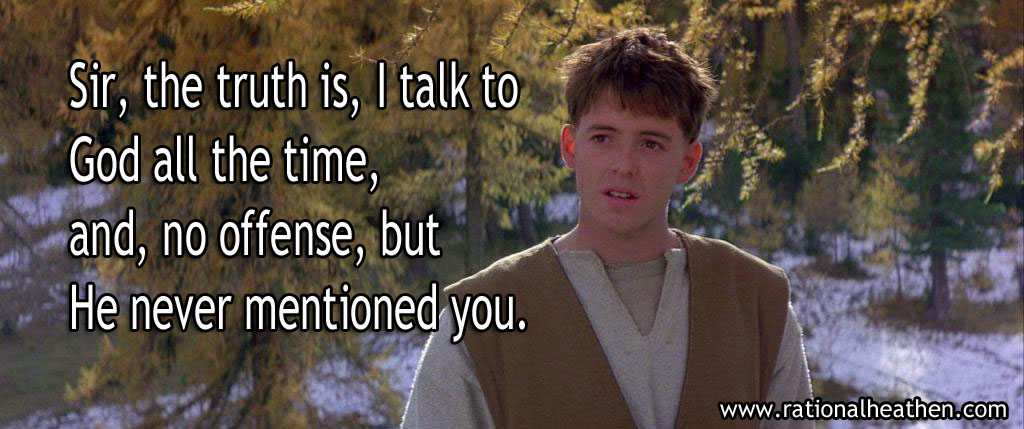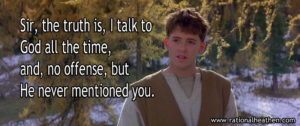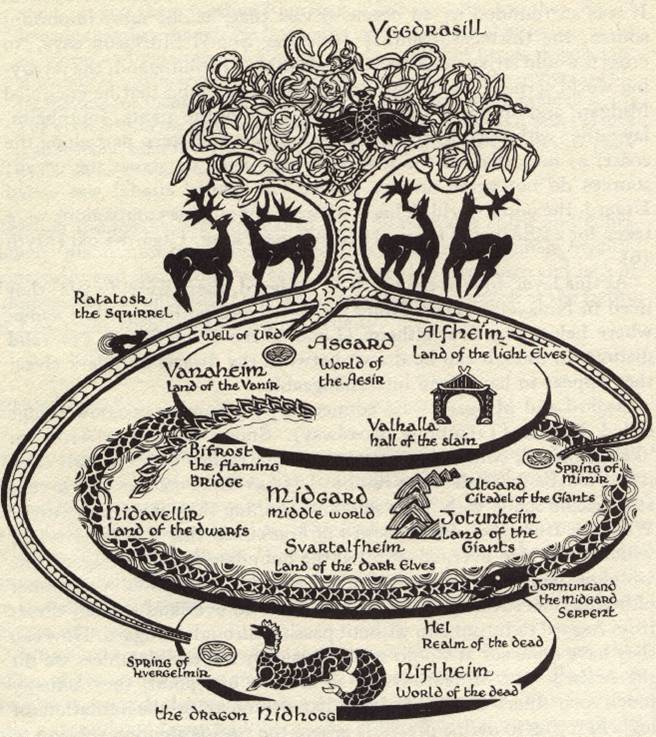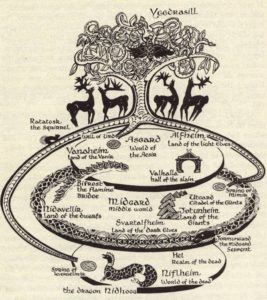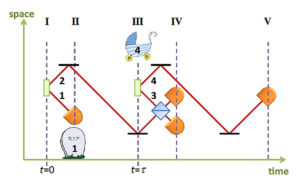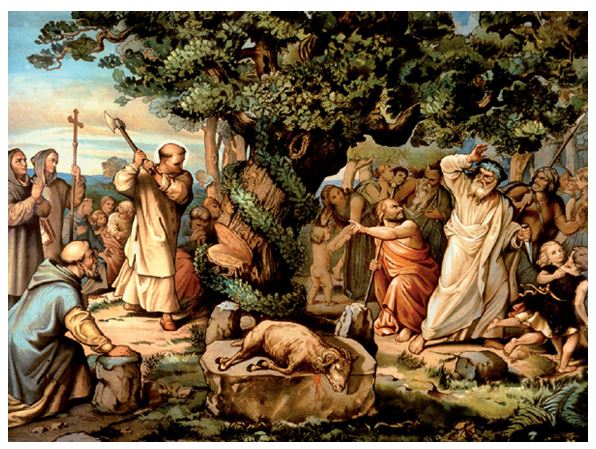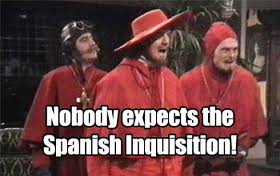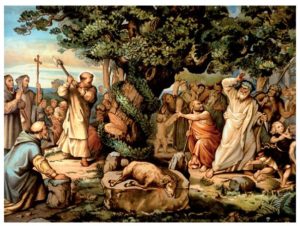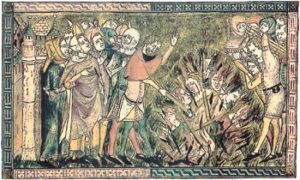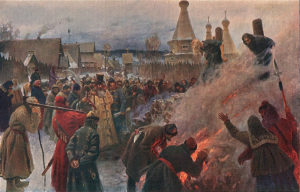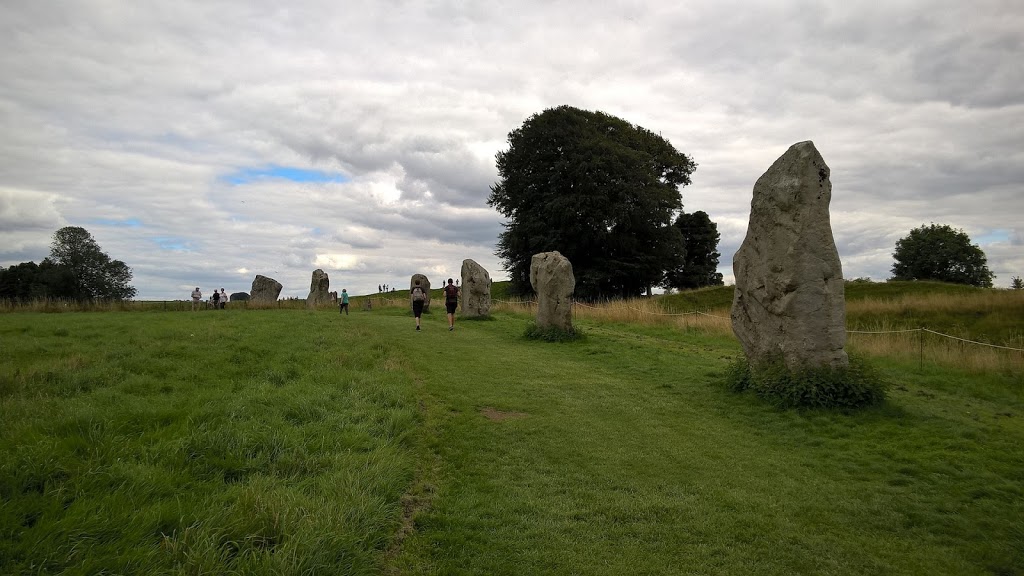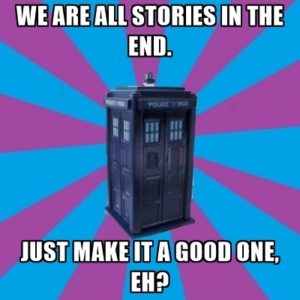Gods Don’t Knock–Making Room for the Heathen Gods
My life is stupid busy. It’s not something I’m particularly proud of, nor is it something I wear like a badge of honor. Which is why it befuddles me why a god–much less several–would pop into my extremely busy life. It’s not like I actually opened up a door, even though Tyr says that I did.
(Am I really arguing with a god?)
Information Addiction
Okay, back to something less esoteric (and I swear all this has a Heathen point, so bear with me). The truth is that someone like me is a real information addict. Which is why when I start writing anything, I get distracted–oooh, shiny!–and I start researching stuff that leads me to not working but instead hoarding information, and occasionally disseminating it. Take this piece. I had no fucking clue what to write about (a constant issue with me) and so I went to some of my favorite sites for inspiration. Only, there wasn’t inspiration but shit that is just distraction. Here’s a sample of my browser’s history:
- 5+ Ways Not to Take Things Personally
- Web Hosting Hub Review: The Good, Bad & My Experience
- Brainjunk and the Killing of the Internet Mind
- 10 Steps to Conquering Information Overload
- Popular–Wordpress Plugins
-
Between Two Worlds: My Journey With Hekate
- Cognitive Ability and Vulnerability to Fake News
-
Lift Weights, Eat More Protein, Especially if You’re Over 40
-
The Most Interesting Science News Articles of the Week
Chances are your browser tabs are loaded in the same way. You’re constantly reading shit other people (including the Rational Heathen) have put out there and have about the attention span of a gnat–oooh,shiny!*
 Why We’re Internet Addicted
Why We’re Internet Addicted
Humans are, by nature, dopamine addicts. Dopamine is the feel-good chemical in your brain that makes you feel happy, gives you that sudden rush during orgasm, and causes you to get high if you take drugs that interfere with the natural chemistry of your brain. (Some drugs cause the brain to produce more dopamine; some drugs inhibit the recycling or reuptake mechanisms. Some really powerful drugs do both, but they’ve got their own risks, like death.) Dopamine causes us to chase after those adrenaline highs (because dopamine is also a precursor to epinephrine and norepinephrine) and it causes us to become thrill seekers. It’s what causes us to hit the feeder bar, as it were, to get that really good feeling again and again.
Internet addiction, by nature, does similar damage to the brain as cocaine. When we learn something new, guess what? We get a shot of dopamine. So, when we’re bombarded with things we read, learn about, feel, etc., we get hits. But we’re often getting those hits on a fast and furious basis and not in a natural sense. So, we get artificial highs from hits off our phone, our computer, and our tablet. But it’s work, right? (Yeah, I have a million justifications why I have to be playing Castle Siege, too.)
The problem is that even bright people tend to use their time for dopamine chasing and not things that actively enrich their lives. I mean, how many times do you check your Facebook posts, your chat rooms, your email, and your text messages a day? How many times do you have to look at your phone? This is not life. It is not living. It is certainly not living as a Heathen.
I’m not saying if our ancestors had these tools that they wouldn’t have fallen into the same trap. On the contrary, they did use psychoactive substances, most likely alcohol and mushrooms. Those who had contact with the Middle East probably had access to opium poppies. Did these substances allow the ancestors to see the gods? Maybe. Maybe not. I’ve known Heathens who swear they have met the gods after getting drunk or smoking weed. Having never experienced that, I don’t know if it was the weed or alcohol, or whether it was the lack of inhibition that enabled them to connect to the gods.
The Gods Don’t Knock
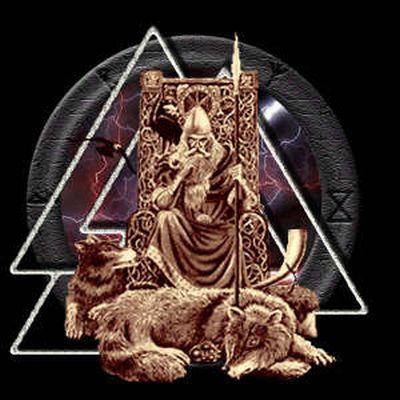 |
| Thanks to Magickal Graphics |
Occasionally I get inspirations from the gods when I’m on the computer, but it’s rare. More often, however, I’ve heard the gods when I’m not linked into the dopamine feeder bar called a computer. It’s because when I’m on computers and smartphones, I’m too tied up chasing that next hit. It’s when I’m away from computers and other distractions that I can finally listen. And that is when they often talk to me. Quietly, and in their own way.
I’m not saying that happens every time. Sometimes I just get silence and nothing else. But the gods don’t knock and ask to speak to you. You must be ready to hear them. You can’t hear them if you’re always getting hits from the dopamine feeder bar. Eventually, you just kind of numb out to everything.
But What About Drugs?
At this point, you’re probably asking “what about drugs or mind-altering substances?” As much as I’m against illegal drugs (for various reasons, having had first hand experiences with addicts and the damage they leave behind), I’m not going to lie to you and say that you won’t be able to have a conversation with your chosen deity. Our ancestors used mushrooms and alcohol, (certainly to channel their inner berserker), and quite possibly to commune with the gods. However, I think the cost of using them to elicit possible contact may be greater than you’ve anticipated. For one thing, the types of drugs used back then are nowhere near the potency of today’s illegal drugs. Even marijuana (which I don’t think the ancestors used) was less potent than it is today. Meth and heroin, for example, are much stronger than what was available in the Viking Era. Then, there is always the “bad trip” and the always nasty side effects of mushrooms such as the toxic Amanita muscaria or fly agaric, purported to be the mushrooms the berserkers used.
There is a Better Way
 y to train your mind that just about anyone can do. It has the benefit of being able to reduce anxiety, lower blood pressure, and give you greater control over your mind and body without feeling like you’re into self-flagellation. If anything, it’s actually quite relaxing.
y to train your mind that just about anyone can do. It has the benefit of being able to reduce anxiety, lower blood pressure, and give you greater control over your mind and body without feeling like you’re into self-flagellation. If anything, it’s actually quite relaxing.
Other Ways to Connect with the Gods
—
*Actually our attention span is less than nine seconds, which is less than a goldfish’s attention span.
